Slobot About Town CXXVIII:
 |
 |
Slobot's Green Machine, pt. 02!
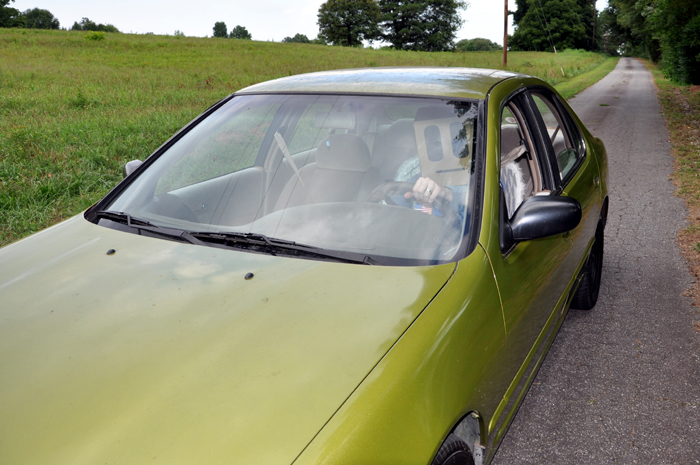
Slobot, having purchased a car, was driving the backroads of Tennessee. Slobot had most recently visited Crossville, TN... |
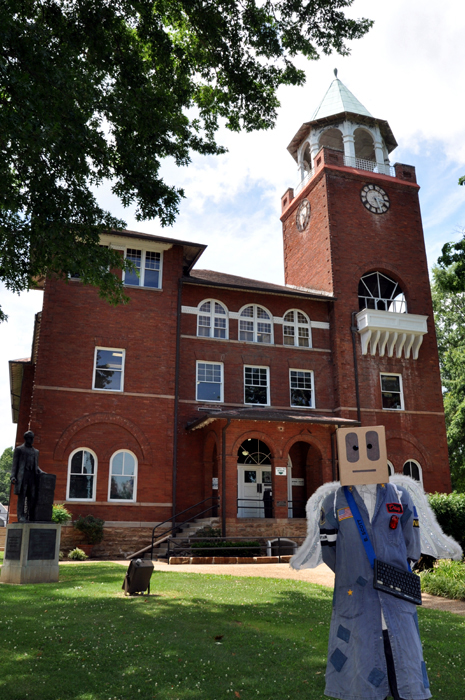
and soon found himself in Dayton, TN. It would be here in Dayton, in this building (the Rhea County Courthouse),

that William Jennings Bryan and Clarence Darrow would argue in what has become known as the Scopes Monkey Trial. |
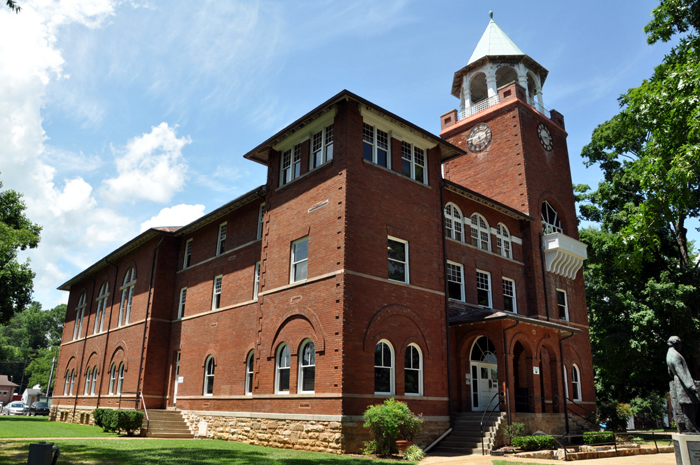
The case, properly called The State of Tennessee v. John Thomas Scopes, involved an alleged violation of the Butler Act. The Butler Act was enacted March 21, 1925 and read as follows: "AN ACT prohibiting the teaching of the Evolution Theory in all the Universities, and all other public schools of Tennessee, which are supported in whole or in part by the public school funds of the State, and to provide penalties for the violations thereof." The law, furthermore, stated "That it shall be unlawful for any teacher in any of the Universities, Normals and all other public schools of the State which are supported in whole or in part by the public school funds of the State, to teach any theory that denies the Story of the Divine Creation of man as taught in the Bible, and to teach instead that man has descended from a lower order of animals." |
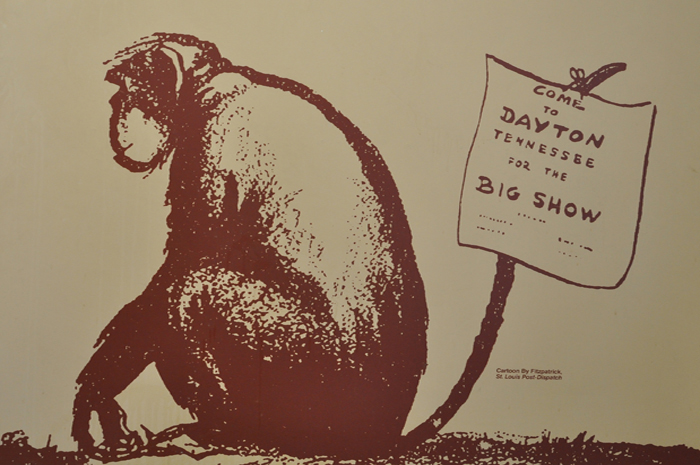
The ACLU offered to defend anyone that violated the Butler Act. Some folks in Dayton realized that such a violation and resulting trial would bring much attention and tourism to their town, and so a local substitute teacher, John T. Scopes, was invited to say that he had violated the Butler Act. Scopes then recruited students to testify that he had taught them evolution. The Big Show had begun. |
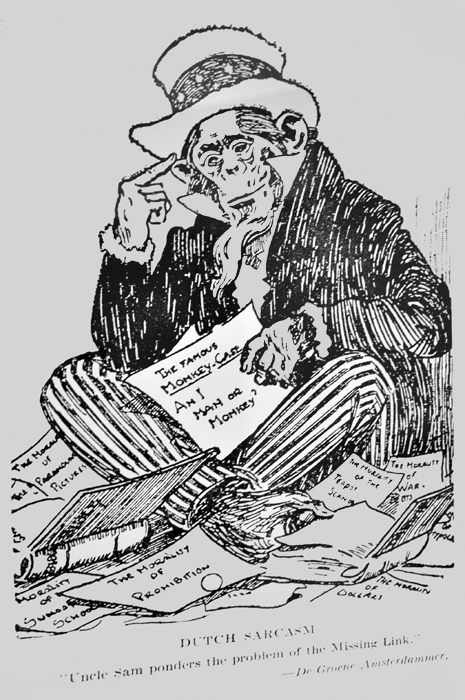
3-time presidential nominee and former US Secretary of State William Jennings Bryan volunteered his services as prosecutor, and famed defense attorney Clarence Darrow volunteered his as counsel for the defense. |
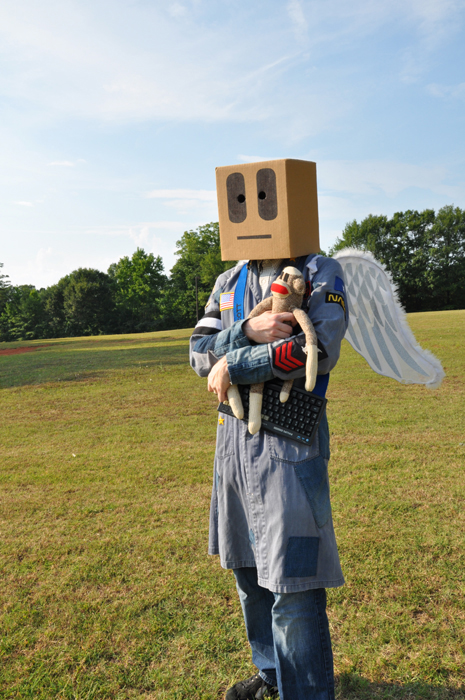
The press, including H. L. Mencken of The Baltimore Sun, descended on Dayton, Tennessee.
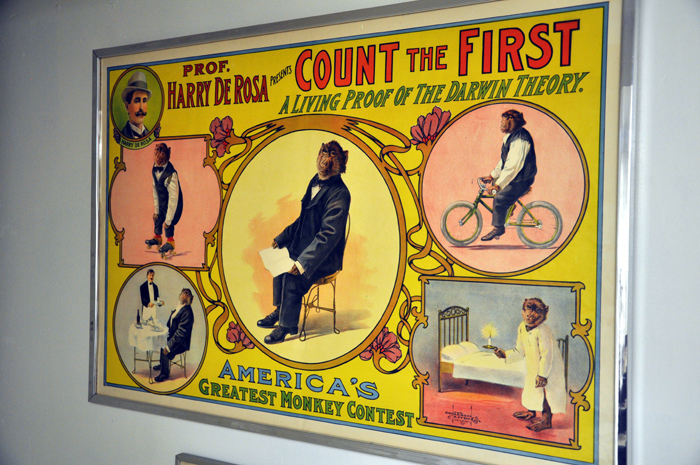
In addition to the press, entertainers and their trained monkeys also arrived.
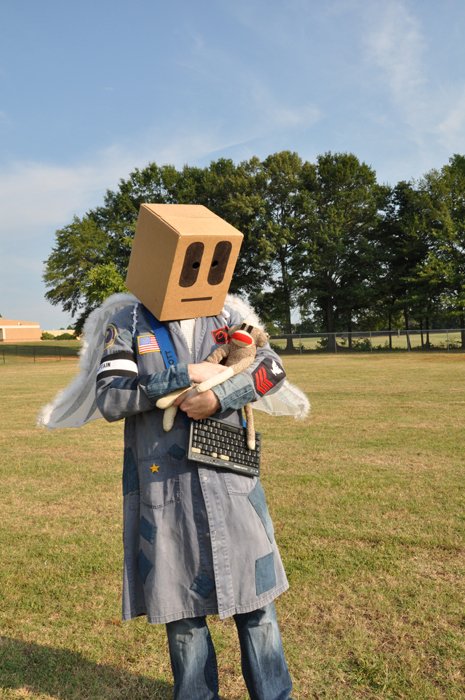
The trial was the focus of national and international attention and would become the first nationally broadcast trial (via radio) in America. |
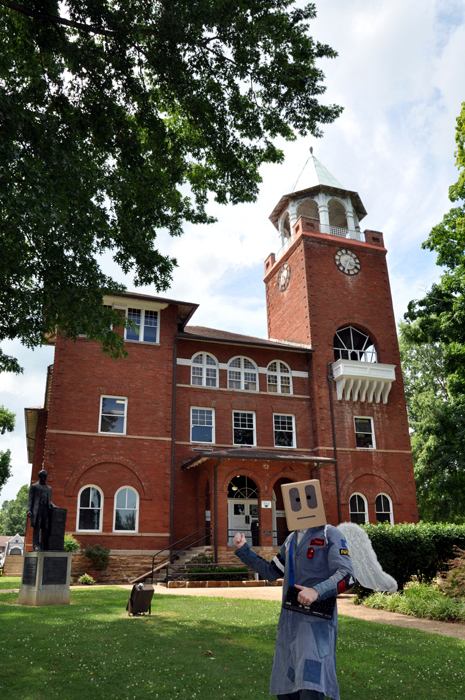
Inside the courthouse, in the dead heat of summer, the trail began. While Bryan eventually won the case for the prosecution, he came dangerously close to undermining his own position. Having argued for the literal truth of the Bible, Bryan had set himself up for a fall. When called to the stand by Darrow, Bryan admitted that he did not believe that the Earth was literally created in 6 days. On July 21, 1925, after 8 long days, a guilty verdict was handed down in part because Darrow requested that his client be found guilty. Scopes was ordered to pay a $100 fine. Scopes never paid the fine and the decision was later reversed on a technicality by the Tennessee Supreme Court. |
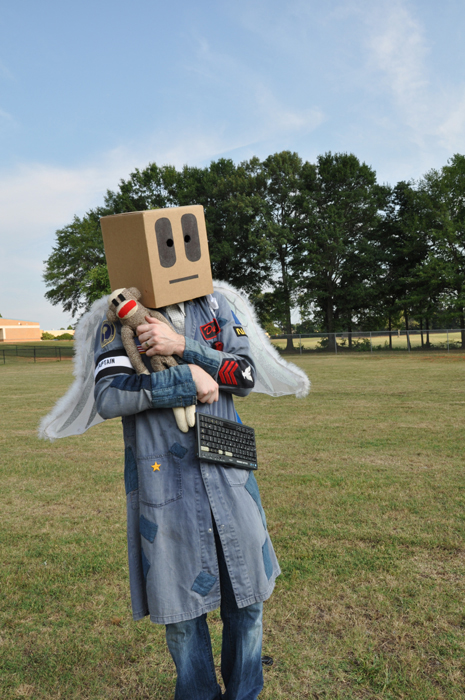
This may all sound like ancient history, but it should be noted that the evolution debate continues in the US, especially in the South. This became abundantly clear when, in 2014, the South Carolina State Legislature found itself embroiled in an evolution debate. The debate centered around a proposal from Olivia McConnell, an 8-year-old science and history enthusiast from New Zion. McConnell had learned that slaves had uncovered a Columbian woolly mammoth's tooth on a South Carolina plantation in 1725. With this knowledge and the discovery that South Carolina had no official state fossil, McConnell wrote a letter to her state lawmakers Rep. Robert Ridgeway (D) and Sen. Kevin Johnson (D) asking them to sponsor a bill to make the wooly mammoth the official state fossil. The bill's original text read: "The woolly mammoth is designated as the official state fossil of South Carolina." The bill, as written, passed the state House easily but was soon bogged down in the state Senate. Sen. Kevin Bryant (R) of Anderson, SC tried to add an amendment to the bill that would have read, "The Columbian Mammoth, which was created on the Sixth Day with the other beasts of the field, is designated as the official State Fossil of South Carolina and must be officially referred to as the 'Columbian Mammoth,' which was created on the Sixth Day with the other beasts of the field." Despite Bryant's attempts to amend the bill, it was signed into law by Governor Nikki Haley on May 16, 2014. |

Slobot decided he had driven too far from home and so made his way back to the Palmetto State, South Carolina.
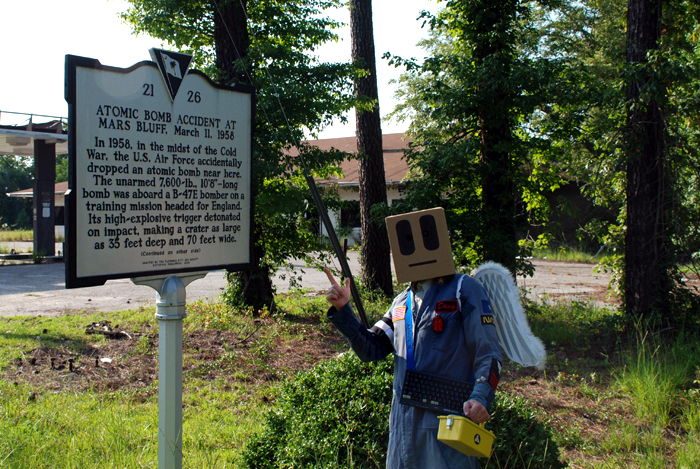
Slobot drove far into South Carolina and soon found himself near Florence in Mars Bluff. Mars Bluff has the dubious distinction of having been atom-bombed by the US Air Force in 1958. |
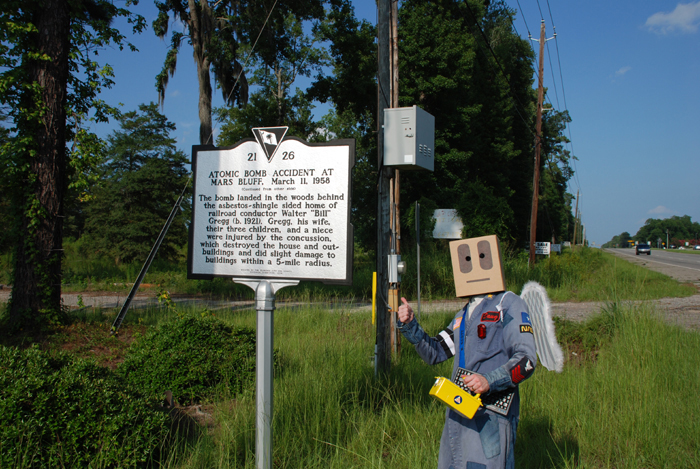
In the late afternoon on March 11, 1958 a B-47E Stratojet bomber (serial #53-1876A) took off from Hunter Air Force Base in Savannah, Ga en route to Bruntingthorpe Air Base in the United Kingdom. |
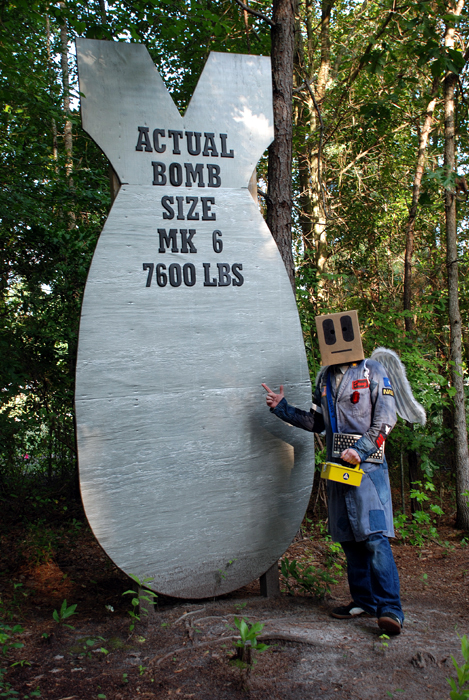
Somewhere over South Carolina the captain of the plane, Captain Earl Koehler, noticed a sort of "Check Atomic Bomb" light in the cockpit. The navigator/bombardier, Captain Bruce Kulka, was sent to check the bomb. |

It was then, at ~4:20 pm, that something terrible happened. Kulka, who was looking for a grip with which to pull himself up, instead pulled the emergency release pin and, in doing so, released the bomb. |

The 7600-pound Mark 6 30 kiloton atomic bomb forced open the bomb bay doors, and then fell some 15,000 feet to Mars Bluff, SC, an agricultural community so small as to not even have a post office. |
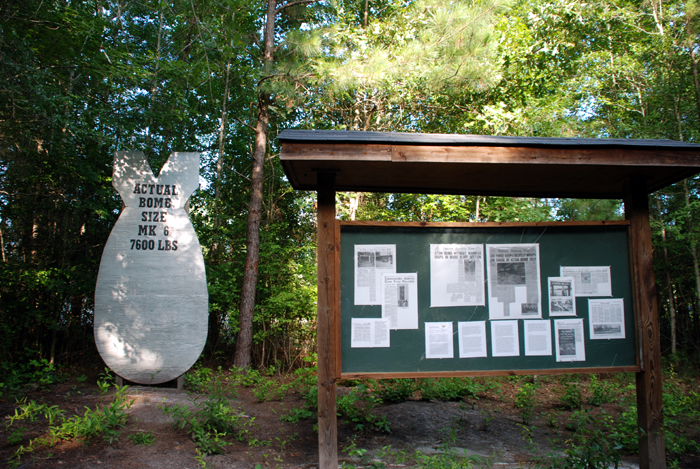
The bomb was thankfully not armed with its fissionable nuclear core trigger, which was held separately aboard the plane, but the bomb did contain a high-explosive detonator that did just that, detonate, upon impact. |
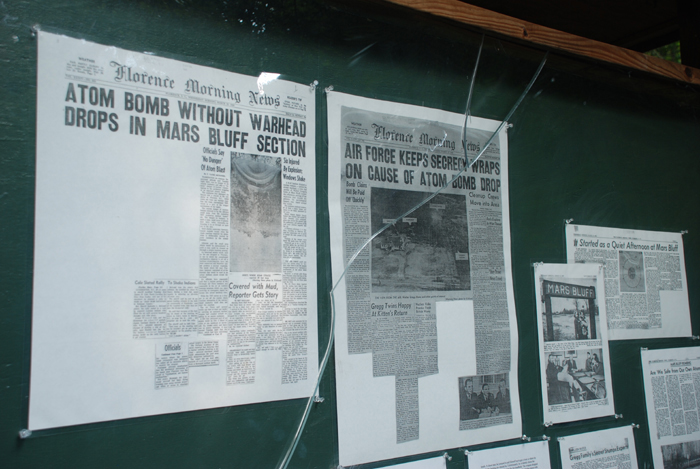
The explosion ripped a crater some 50 feet wide by 35 feet deep.
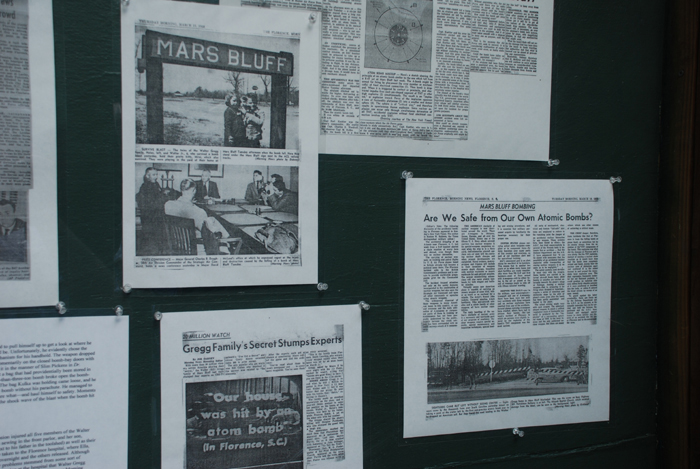
No one was killed in the explosion (save for a flock of chickens that were vaporized), but the home of Walter "Bill" Gregg, a railroad conductor, was destroyed, along with several outbuildings. |
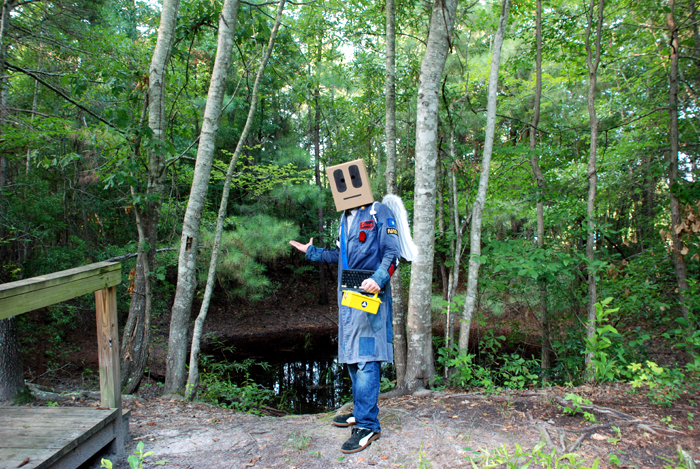
Gregg, his wife (Ethel Mae Helms “Effie” Gregg), their three children (Walter Junior, Helen and Frances) and a cousin (Ella Davies) were injured in the concussion of the blast. |
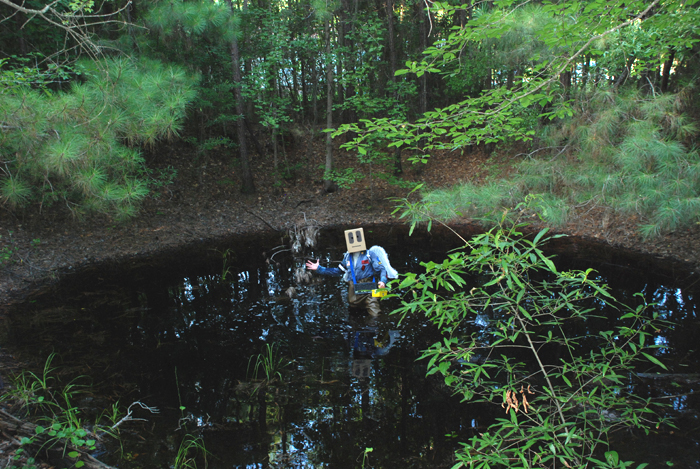
Ella Davies injuries required 31 stitches. 3 miles away a store's canned goods were shaken from their shelves.
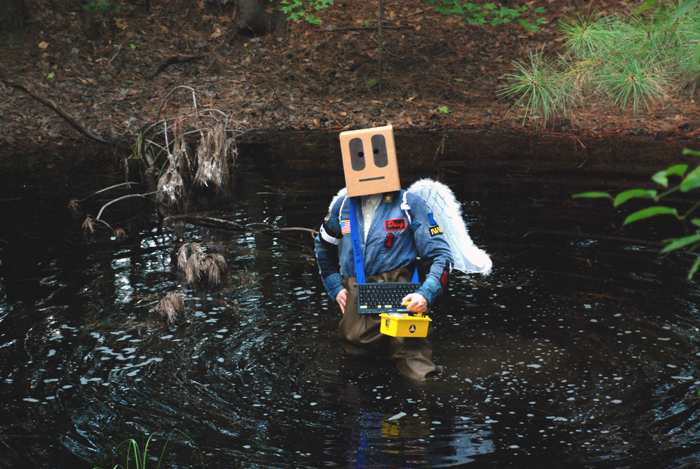
After a lengthy legal battle with the US government, the Greggs were awarded ~$54,000.

Slobot once again hit the road...
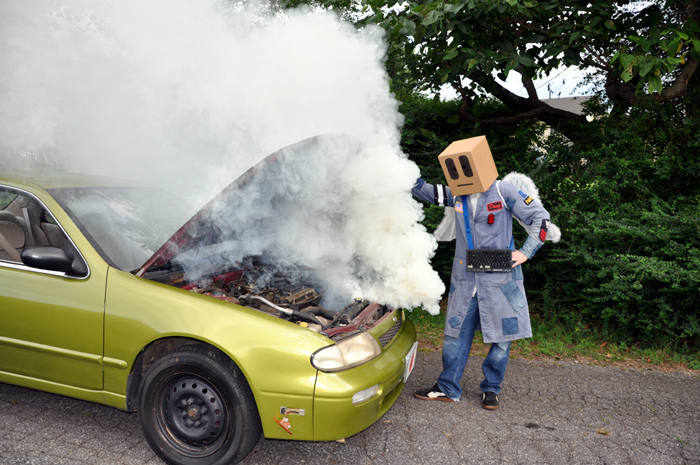
but Slobot heard a disturbing noise and smelled a disturbing smell, he pulled over and popped the hood.

Slobot knew that this smoke was bad news, a death blow for his beautiful green machine.

Slobot would like to thank Horace Burgess, the staff of the Rhea County Courthouse, Wilson's Towing and YOU!
